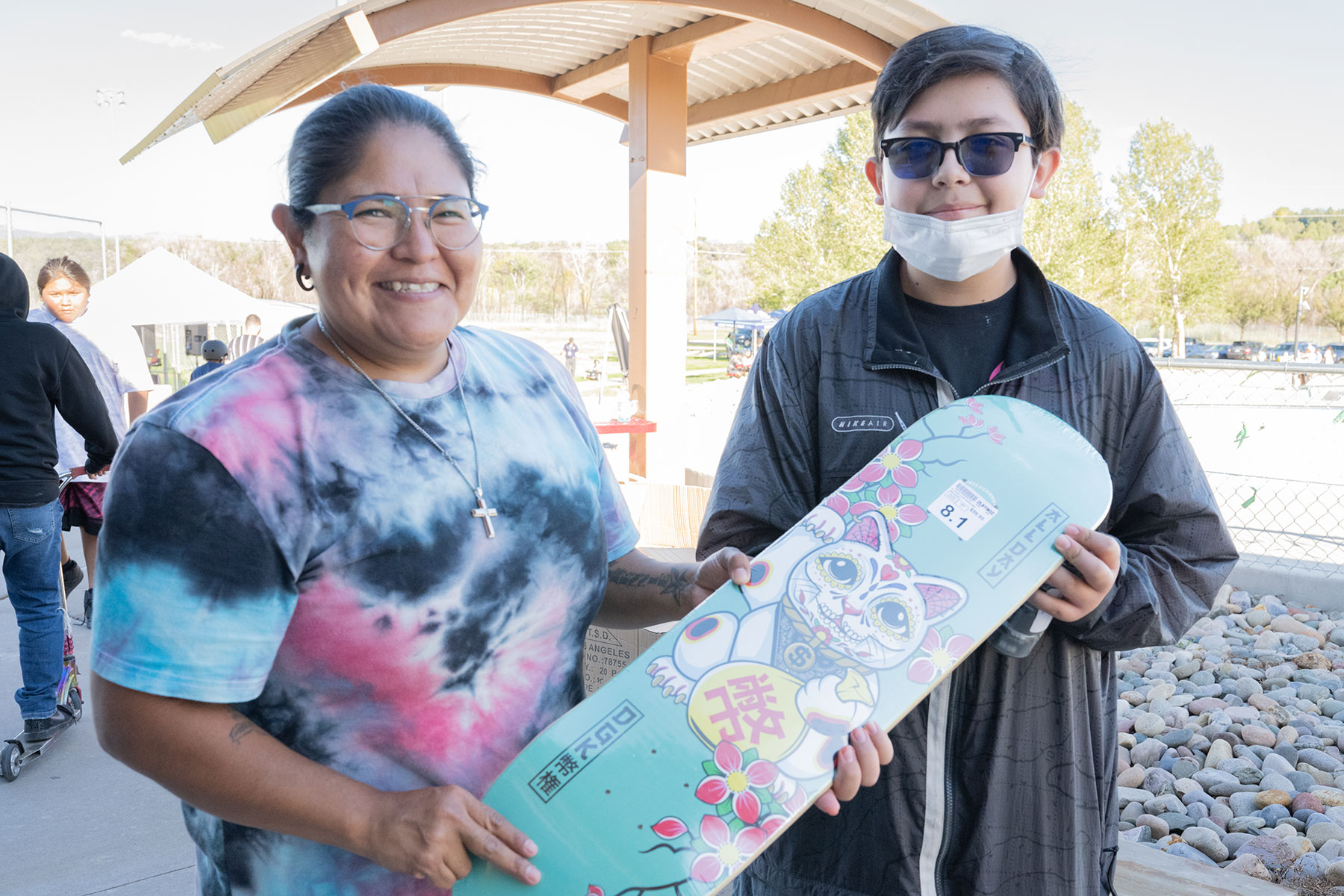This year the Southern Ute Native Connections Program (NCP), a nationally grant funded program through the Substance Abuse and Mental Health Services Administration (SAMHSA), will be ending in September of this year. Over the last five years the NCP has worked diligently to help the tribal community identify and address the behavioral health needs of Native youth.
The program consists of three employees, Southern Ute Behavioral Health Manager Mary Young, NCP Therapist Cedra Etesam, and Program Coordinator Precious Collins. The main focuses of the program include reducing suicidal behavior and substance abuse among Native youth up to age 24, easing the impacts of substance abuse, mental illness, and trauma within Native communities, as well as supporting youth as they transition into adulthood. Throughout the past five years the program has collaborated with many entities within the Tribe to spread awareness and uplift youth within our community.
NCP in collaboration with local, state, and Tribal entities have completed numerous programs and events including, the “I Rise Above” Mural, Gun Lock Safety Project, annual “988 Skate Park Jam,” Ice Climbing in Ouray Ice Park, plus multiple substance abuse preventative trainings, in addition to suicide awareness and social norming campaigns throughout the community. In an interview, Collins shares that these accomplishments were made possible through collaboration.
“We [NCP] realize that in order to address and get to the root of some of the mental health and substance use challenges that our Native American youth might encounter, it’s not just going to be one program or person addressing it–so it takes a whole community,” Collins said. “That’s been our motto — ‘let’s work together,’ when we work with multiple programs and individuals, especially here with the Tribe, we’re not only able to support one another and bring out really awesome community events, but we’re also able to spread awareness and the educational piece of the program.”
NCP Therapist Cedra Etesam shared that one of the NCP accomplishments she takes pride in is the programs presence within the educational entities throughout the Ignacio community and Tribe. “I think that making a presence within the schools has been one of the greatest accomplishments thus far with being part of this Native Connections Program,” Etesam said. “It’s very enjoyable, I really enjoy advocating for the kiddos in the schools, [NCP] will definitely do whatever we need to do to help students have a voice and develop the space they need within their little community then we will hold their hand through that process.”
Southern Ute Behavioral Health Manager, Mary Young shares that she is most proud of the visibility the program has created for youth within the community over the last five years of operation. “If I had to put one word for what Native Connections has accomplished, it’s visibility,” Young said. “I think about the mural involving the youth, creating that mural of resiliency and I think about the stickers and the flyers–the messages are there, the visibility is there, I want to make sure we continue that.”
Despite the grant funded program ending this year, the group hopes to continue their campaigning efforts and educational resources for all members of the Native community. Program resources will continue until the month of September and will continue to be available through the Southern Ute Behavioral Health Division. Collins emphasized that those resources, such as the 988 Suicide and Crisis Lifeline, are continually available to all nationally.
“The substance use or the behavioral health team is out there, their resources are always going to be here,” Collins said. “The grant in the program itself is ending, but the efforts, treatment, and information is still very much a part of the Behavioral Health Division.”
For more information regarding the Native Connections Program please contact the Behavioral Health Division at 970-563-2365. Always remember that help is available 24/7 via the Suicide & Crisis Lifeline at 988.

